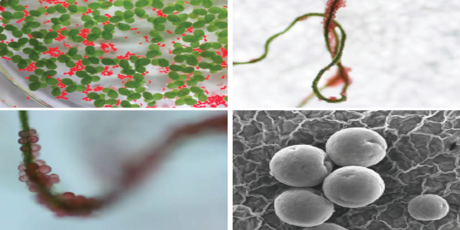UCC scientists show that freshwater plants are passing microplastics up the food chain 08 Jun 2021

A new EPA Research report from the group of Professor Marcel Jansen of the ERI and the School of BEES, published today, reveals the effects of microplastics on our freshwater plants and animals, and warns of potential repercussions for the entire food chain and ultimately, the human population.
Plastics are a key part of a modern lifestyle. They are durable, lightweight, and low cost. However, the production and use of plastics is resulting in widespread plastic pollution in the natural environment. Especially worrying are small plastic fragments called microplastics as well as even smaller nanoplastics. While it is now well known that microplastics are found in our oceans, it is important to realise that they are found in our freshwater environments as well.
This study looked at the impacts of microplastics on the Irish freshwater plant duckweed and found that hundreds of small plastics can stick to just a few square mm plant surface. “The finding that microplastics adhere to plant surfaces is alarming,” said Prof. Jansen, “Because other creatures are feeding on these plants and ingesting the microplastics”. The team found that when a freshwater crustacean Gammarus feeds on duckweed, it ingests these plastic particles. Investigations by Dr Alicia Mateos-Cárdenas, the PhD researcher on the project, showed that once ingested by Gammarus, microplastics are very quickly broken down into smaller nanoplastics, which is even more worrying as nanoplastics are small enough to enter living cells, potentially causing metabolic disruption.
Prof.Jansen comments that “once plastics are ingested and fragmented intomicroscopic pieces there is currently nothing that can be done to catch these pieces of plastics. Therefore, the only way to stop the pollution of our freshwater environment is to remove the larger plastics before they disintegrate. As a society, we need to prevent plastic pollution of the environment by reducing, reusing and recycling plastics.”
Full report available to download here:
Acknowledgment: This project is funded under the EPA Research Programme 2021-2030. The EPA Research Programme is a Government of Ireland initiative funded by the Department of the Environment, Climate and Communications.
